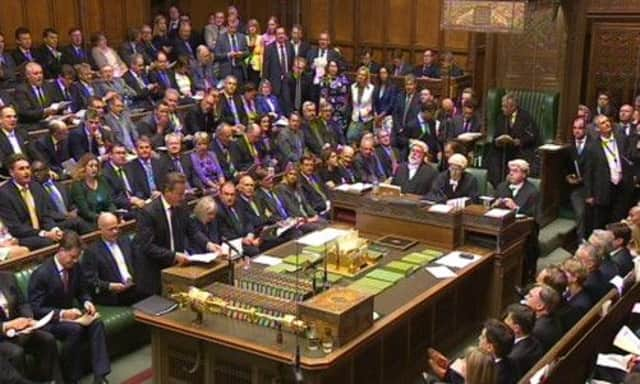Andrew Wilson: Approaching the Syria crisis


Understanding our role as a nation in a world of too much injustice and too many murderous regimes is not a simple task. The average citizen looks to our leaders for leadership, which as this column noted last week, is an all-too rare commodity in any walk of life, but especially in politics.
Making sense of the crisis in Syria and determining our response to it is one of the most significant leadership challenges of our time. If Syria existed in isolation it would be difficult enough. We need to be sure of the justification, legality, objectives and consequences of any intervention. Every day in Iraq the body count rises following a conflict that began more than a decade ago.
Advertisement
Hide AdAdvertisement
Hide AdIn Syria now we are faced with more questions than answers. United Nations weapons inspectors are tasked to determine whether chemical weapons were deployed, but not who deployed them. It is in the very least an odd thing that these weapons would appear to have been deployed on the very day those inspectors arrived to commence their work.
In any event, it poses an immediate challenge to the “red line” drawn by President Obama, requiring a response to any such deployment. If he was to fail to act now, what message would that send to other regimes, in particular Iran, in the event of similar actions in the months and years to come? His dilemma is clear.
Which brings us to the single most important point – that Syria is not isolated. It is part of a complex, puzzling region undergoing a pervasive sectarian and civil war in which Sunni and Shia Muslims battle one another for control.
So we must ask ourselves: if we send yet more bombs and missiles raining down on yet another Arab capital, what problem will it solve and when will it all end? How can it truly stack up to solve one humanitarian outrage with yet another humanitarian disaster of our own making?
The anger and distrust across the region towards us and our allies is crystal clear and growing. At the very least we can understand why. It should be apparent to us all that our policy towards the Muslim Arab world is creating as many problems, or more, as it seeks to solve.
That cannot be an excuse for doing nothing. It is clear the world community must act. But individual states acting alone as self-appointed moral guardians increases the risks to all, as Iraq demonstrated.
This week’s debate in Westminster offered a sound and clear route in an amendment sponsored by an unprecedented combination of Labour and the SNP, along with other small parties. It didn’t rule out intervention, but learning the lessons of previous disasters called for safeguards: evidence; legality in international law; clear objectives; UN inspections; clarity on the likely impact; and the support of parliament.
From a Scottish perspective this solid policy foundation was voted down despite the overwhelming backing it received from our own MPs, but that is another point for another day.
Advertisement
Hide AdAdvertisement
Hide AdWhat matters most is that Labour–SNP tribalism was shelved in the clear interest of the greater need. This matters enormously.
We cannot allow our frustration at the agony and injustice being meted out by vile regimes on their own and other citizens to determine a military response. We have been down that ruinous road too often before.
When it is clear that missiles launched by the US and France are not intended to change regimes or even tilt the balance of power, we must ask: what price a shot across the bow? Given they are unlikely to destroy all chemical weapons stocks or the people alleged to have used them, what is the real point?
One clear action we must pursue now is to create an International Criminal Court, or UN Tribunal, to pursue the individuals responsible for this and any other attack relentlessly, until proper justice is done and seen to be done, however long that takes.
Until we promote an actual policy such as this, or the stance in the Labour–SNP amendment defeated in Westminster this week, we will be a nation without a policy and confused about its role.
When the Austro-Hungarian empire blundered into Serbia about a century ago after calls to “do something” following the assassination of Archduke Franz Ferdinand, few if any anticipated the consequences in the bloody conflict that followed.
The Balkans then were a similar powder-keg to the Middle East today, only the means of war now are altogether larger and bloodier in potential.
Better to have one or two political leaders bowed and diminished before their party than have us all rush headlong into an action yet to be justified, with consequences uncalculated and objectives ill-defined. «
Twitter: @AndrewWilsonAJW